The God of Every Day
I first saw Alexis Pauline Gumbs read from her visionary work in 2019. She lead an audience in reflection, meditation, and deep, stirring consideration of our ancestors in the room, with us, at a conference at Duke University, called “Incomputable Futures: A Symposium on Representation, Computation, and Experimental Scholarship.” For the whole year prior, I’d spent a lot of time with her book M Archive: After the End of the World, a stunning second entry after her first book, Spill: Scenes of Black Feminist Fugitivity, both published through Duke University Press. Both books are foundational texts for thinking through survival, persistence, and creative possibility in face of both ongoing and speculative cataclysms: of antiblackness, of environmental crisis, of late capitalism. To hear her read in person, after so much time with her words, was an ascendant experience. I felt with others in the room the tangible, material possibilities of a critical and speculative practice, all sharing in an instant practice of thinking with, thinking alongside, thinking through. We are deeply honored to present a new commissioned feature by Gumbs, “The God of Every Day,” in which she responds to this year’s editorial frame at Topical Cream, around daily practice, maintenance, and intergenerational sharing. She does so in her classic and singular experimental prose, felt and explored as the manifestation of daily ritual. Gumbs is a scholar, writer, educator, and activist who is shaping the future of critical thought. She is currently at work on a new book, The Eternal Life of Audre Lorde: Biography as Ceremony, forthcoming from Farrar, Straus, and Giroux. We sincerely invite readers to please explore her long record of groundbreaking work, practice, and thinking at her literary home online.
– Nora N. Khan, 2021 EIR
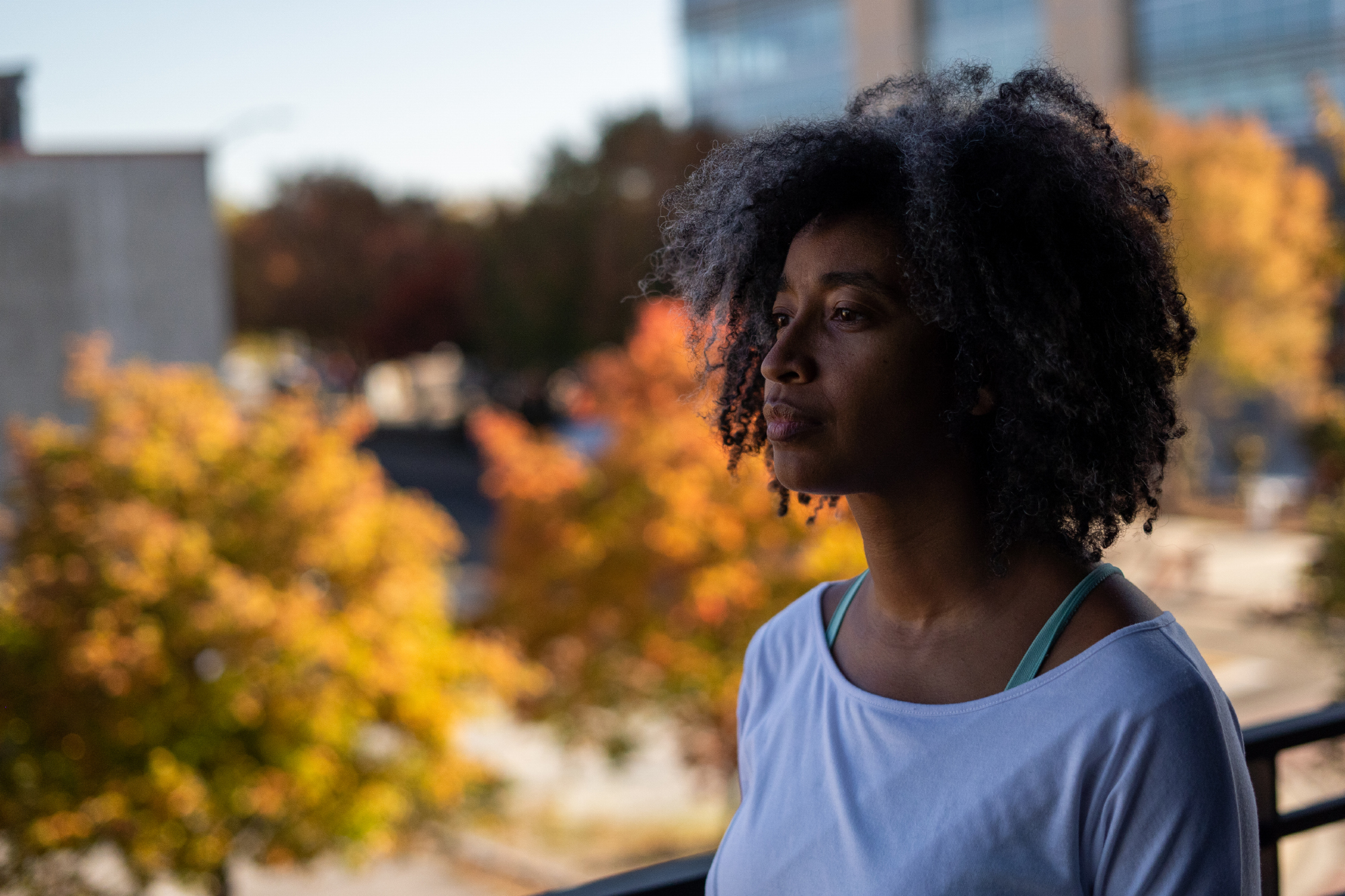
What if it is not an experiment, this creative life of refusal. This rarely institutionally-funded disloyal life of practice for a world as yet unnamable. This insistence on transformation when the bank account screams “conform.” What if this life as an independent experimental artist is not itself an independent experiment? What if it’s an interdependent ceremony?
abenaa1
and so
she knows
that the same
heat
that makes the heart beat
must make
the fist rise
must make
the heels plant
must sharpen
all breath
she was born
on Tuesday
and so she knows
that you keep
fire alive
with what you give it
It was because I wanted to listen to what she might be saying. It was because I wanted to speak in a way that she might be able to hear across everything. It was because my elders told me that Boda, our ancient mother who survived the middle passage was an Ashanti woman, that I began to teach myself words in the sacred Akan lexicon. It was because I wanted to understand her prayer. It was because I wanted her to hear me calling out. That’s why I picked up J.B. Danquah’s The Akan Doctrine of God. I wanted to know the words that Boda, Boda’s mother, Boda’s sister, Boda’s aunties, and Boda’s grandmother might have used in ceremony before.
“What if this life as an independent experimental artist is not itself an independent experiment? What if it’s an interdependent ceremony?”
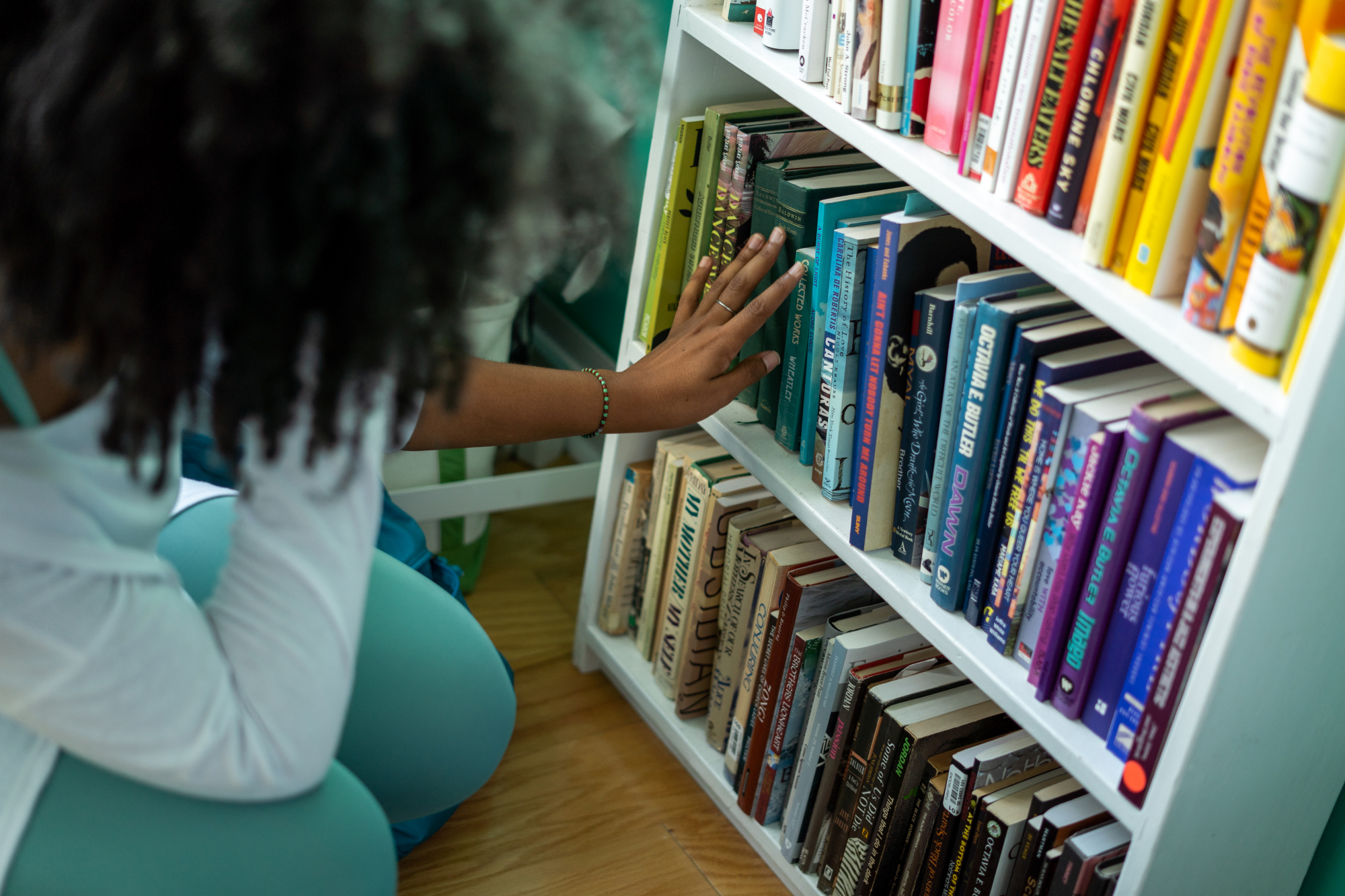
Yes, Danquah died in prison as an enemy of his people. And personally I think he panders too much to the European academy in which he published the book. He also erases feminine iterations of God in his work. I would recommend Akom: The Layered World, by Nana Oparebea. But Danquah, arguing for an Akan concept of God to an audience of European theologians and anthropologists and seeking also to displace several colonial misinterpretations needed as many names for gods as he could find. So I worked through the pages, and wrote a poem every time he named a different name for God. A particular god with a particular function. A type of god. The way you name God in the face of death or in the face of famine or to describe origin or to describe connection. An etymological trace of God in a word that means something else. It helped me to remember that everything is God. A plant. An old proverb. A day of the week. Everything is God. Everything and everyone.
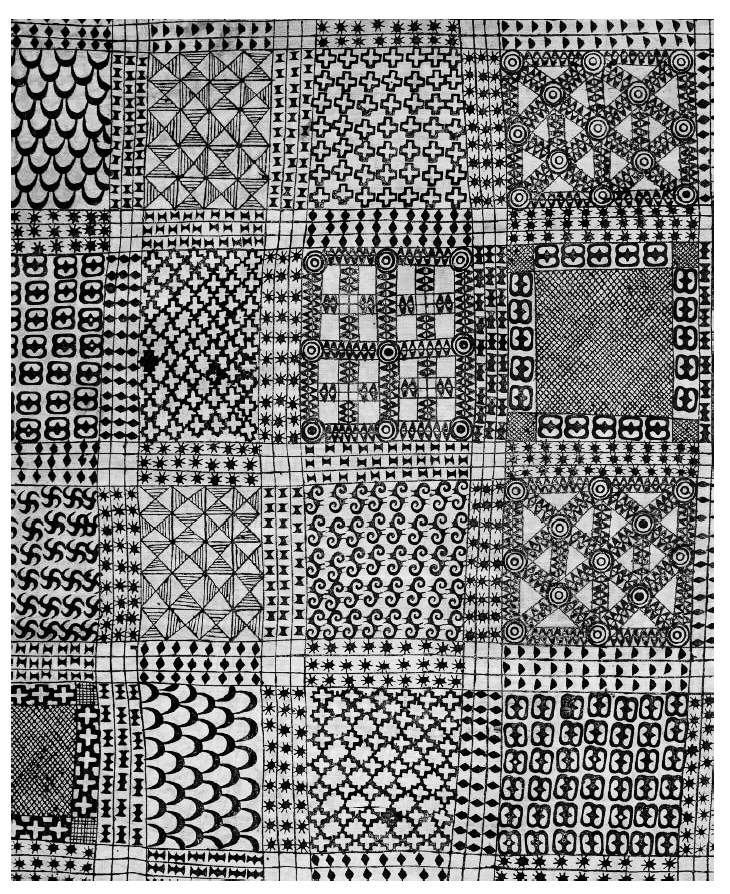
kwaku2
in the middle of everything
he woke
in the middle of everything
he found the joke
and told it
found the yoke
and slipped it
off his neck
in the middle of the wreck
you float
in the middle of the worst
you listen
blinking
thinking of a way
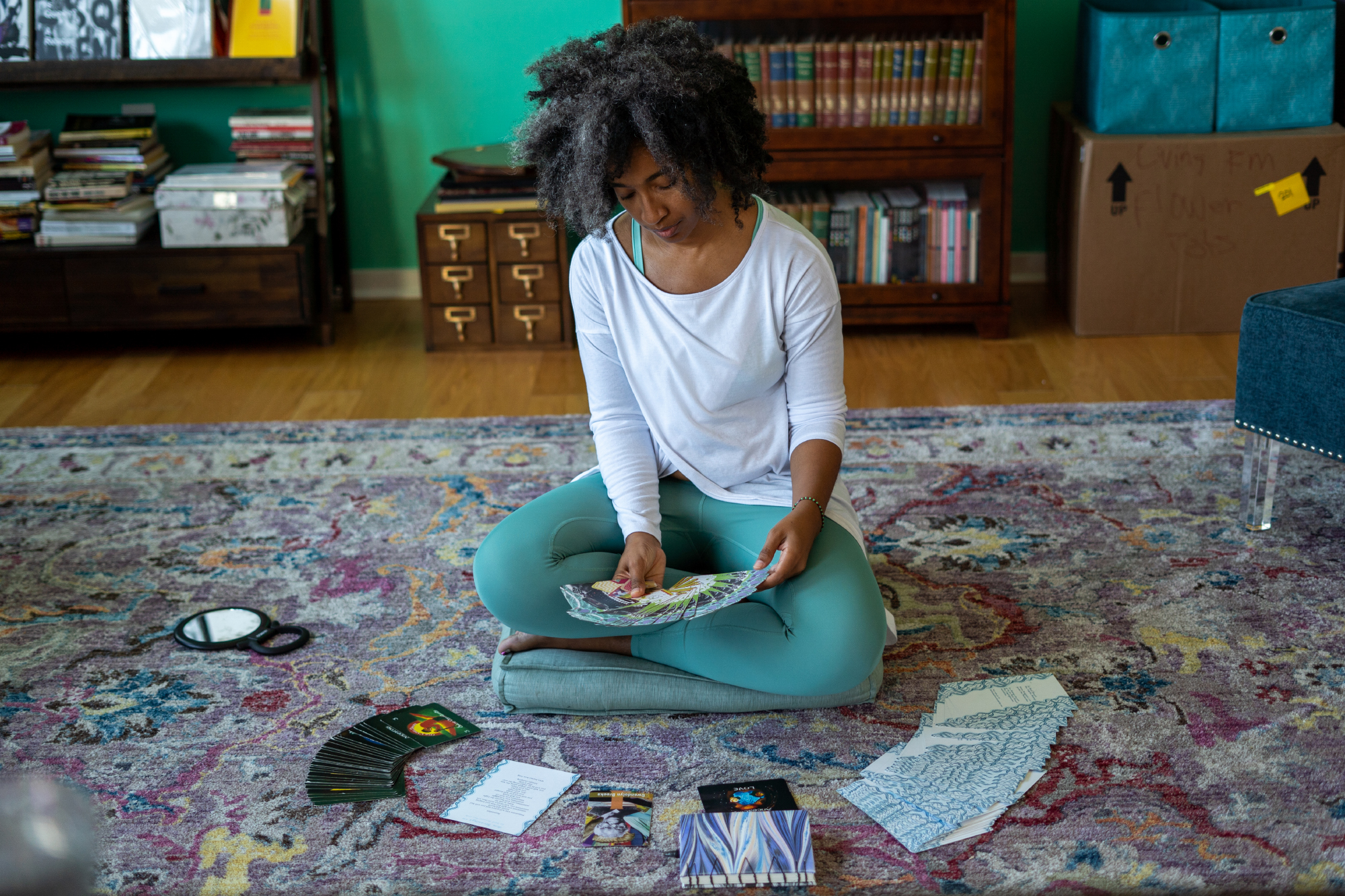
What is a sustainable model for life as a queer Black feminist artist thinker trouble maker whose work bridges and transforms genres and fields of study and practice? Maybe we overuse the word “sustainable.” Maybe I didn’t come into life on earth to be sustained or to sustain something. If I break the word into what I need it for, I hear stay … stain.

yaoda3
by this day
you will know
what of what
you told yourself
this week
were lies
what of what
you made
of this
attempt
will last the weekend
what to thank
and peacefully
let go
what you know
that you
couldn’t imagine
just a few days
ago
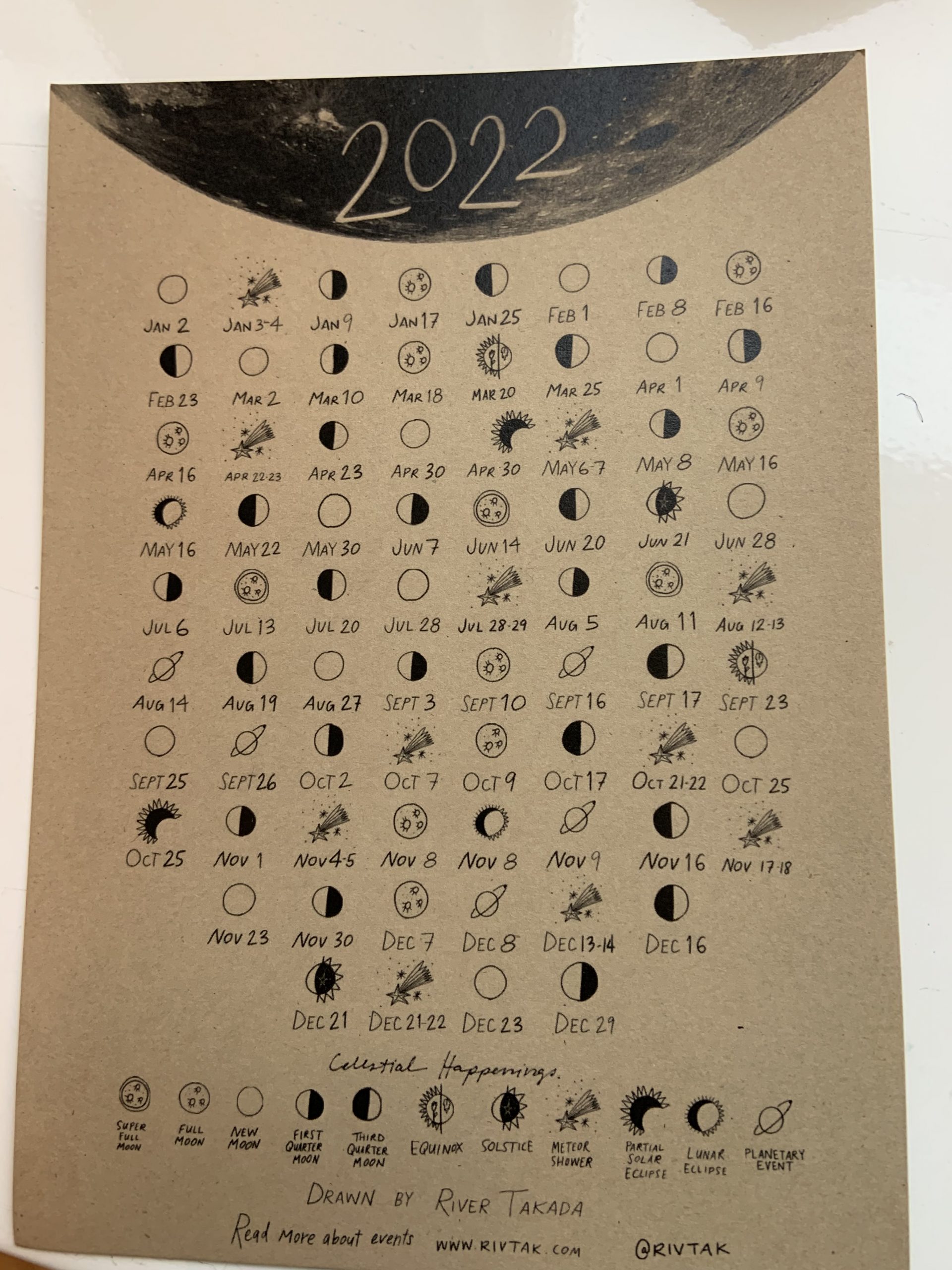
If I was answering the question of how I stay in the work that stains my hands and the walls around me, I would say practice. I practice my practices. Looking myself in the eye in the mirror is a daily practice. A tarot reading for my mother. Blending the tea I need for this moment of embodiment. Spending time with my ancestors. Writing something I don’t care whether anyone reads. Filling the air with cinnamon. Dancing with my partner. Video calling my nieces. Composing a sentence in a language I don’t speak daily. These are some of my daily practices. I protect my practices. There are many names for God. The name I use is “every day.”
“What is a sustainable model for life as a queer Black feminist artist thinker trouble maker whose work bridges and transforms genres and fields of study and practice? Maybe we overuse the word “sustainable.” Maybe I didn’t come into life on earth to be sustained or to sustain something.”
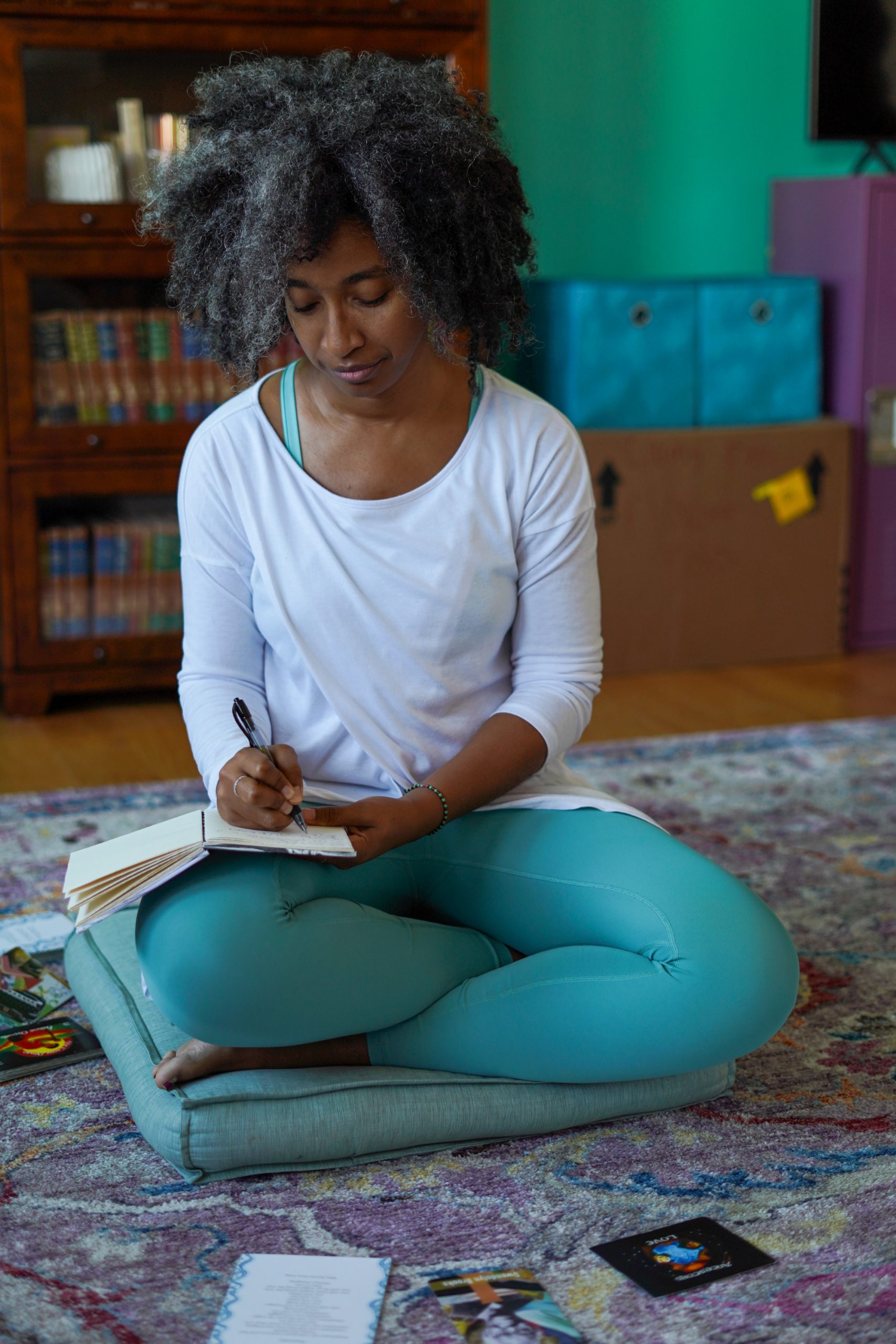
asase afua4
goddess of earth
and Friday
stay the weekend
show us how
to keep the mettle
in the earth
where she belongs
show us how
to keep our breathing
in our blood
so we can stay
give us something
even we can’t
take away
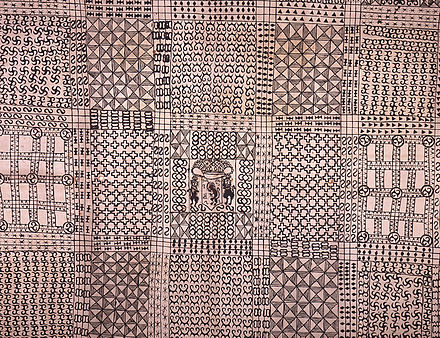
Along with practice, the other word I would use is people. The people born on the first and second and third and fourth and fifth and sixth and seventh day. What allows me to stay in the practice of creation is the love of the people and the warriors in my life who show up for me when I don’t know how to, and who allow me to become a stronger force by showing up for them. The people born on some specific day who show up as who they are in my life right on time.
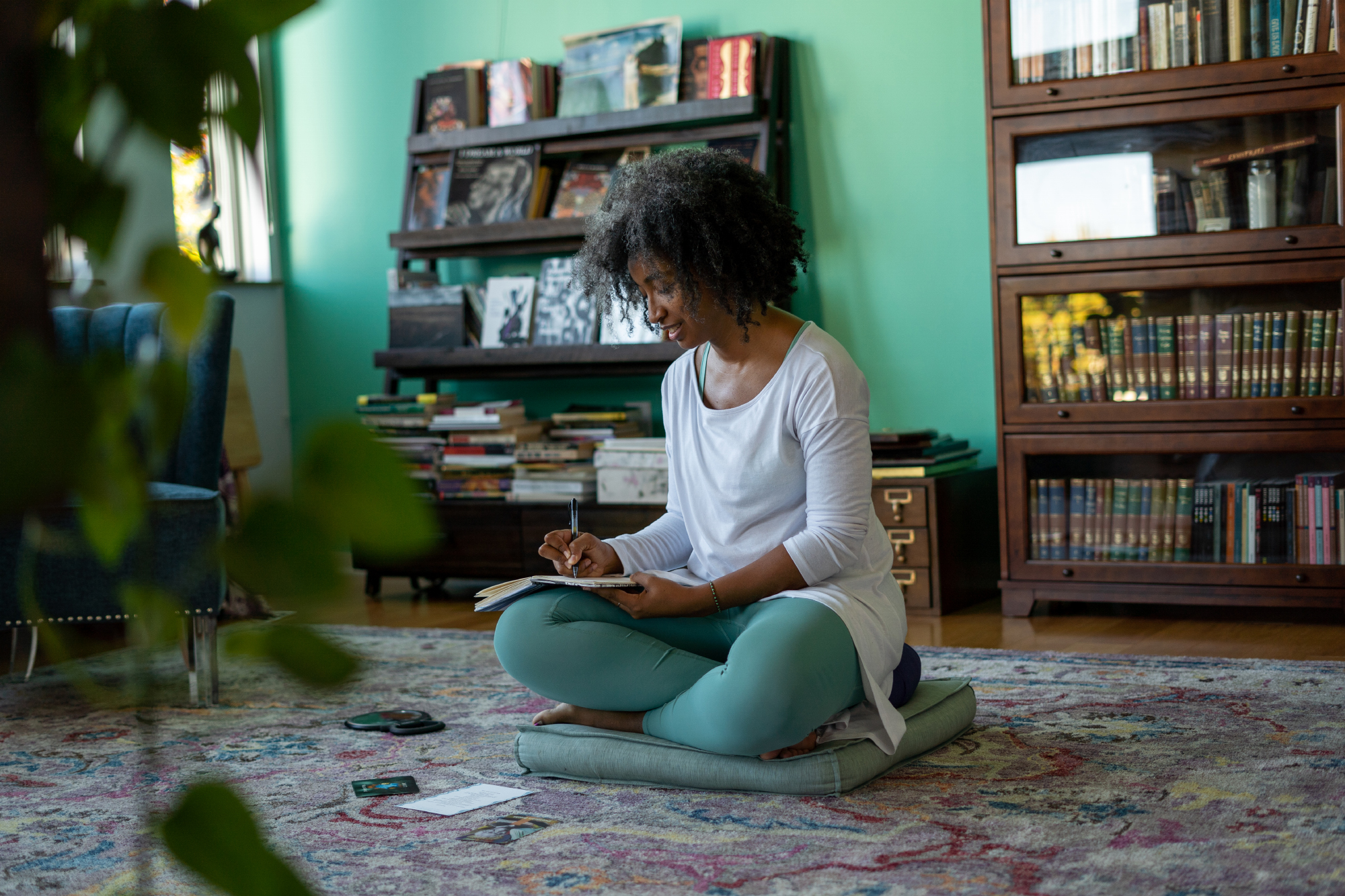
Nyankopon Kwaame5
expect sun
expect sun and rise to meet it
but do not rush
expect sun to rise to meet you
and love yourself
like sun herself does
offering everything
arise and offer light
by candle or laughter
to all before
and all to come after
expect sun
and find her

I was born on a Saturday and I take my rebirth seriously. I celebrate my birthday better weekly than annually. Which is to say that creating ceremony requires rebirth. Which is why what many read as experimental art, in contrast to more normative forms of artistic practice, I would call ceremony. Because “experiment” is laced with the idea of objectivity, of an experimenter that remains intact while manipulating variables in a repeatable way that causes change that the experimenter can perceive from outside the change itself. But I am not outside this process. I am inside these repeatable practices. I am becoming something else. We are becoming something else. Which is why we need a ceremony. Happy birthday.
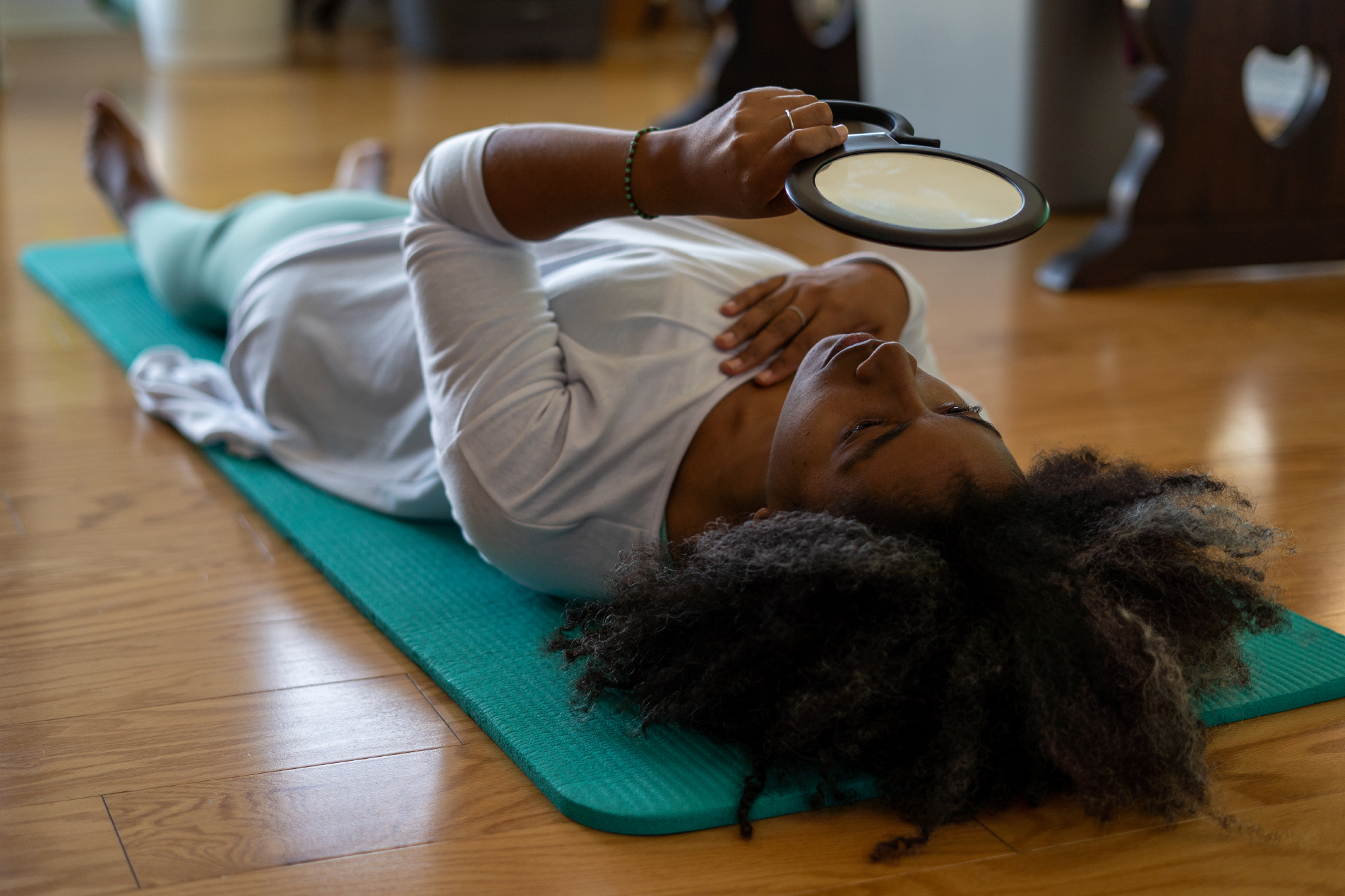
Awusi6
if i send you rain
will you then find the sun
within yourself
if i offer solitude
will you soon find the peace
in your own hands
if i give you time
will you slow down
the ticking in your chest
what if i give you all day?

“Because “experiment” is laced with the idea of objectivity, of an experimenter that remains intact while manipulating variables in a repeatable way that causes change that the experimenter can perceive from outside the change itself. But I am not outside this process. I am inside these repeatable practices. I am becoming something else.”
And then there is the answer under the answer. Experimental artists, unruly creative women and non-binary folks, especially when we are Black and/or queer, don’t necessarily live long, sustainable lives. Sometimes we don’t. Sometimes our don’t has to do with years of lacking access to healthcare. Sometimes our don’t has to do with the environmental racism of where we can afford to live. Sometimes our don’t is psychological. Sometimes our don’t is murder.
This is the real reason why my name for God is “every day.”
I’m grateful for each one you and I have.
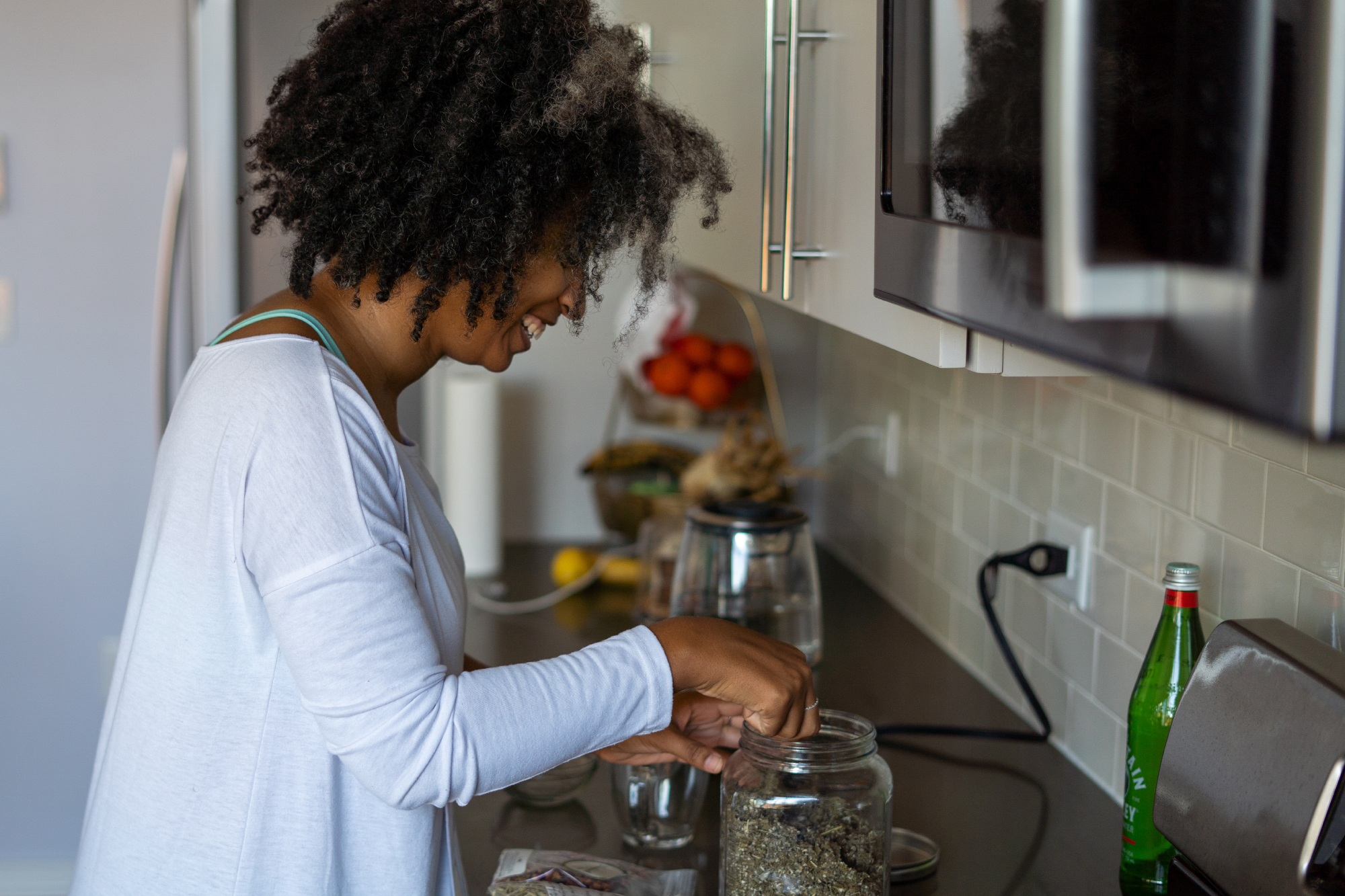
Awo7
For Michelle Gonzalez-Green8
if the moon was a blanket
cool and white
we would spread it
on your bed
so you could dream
but the moon is not a blanket
it is a world
with craters and dust
it is stone in orbit
listening for the tide
the moon is not a bedspread
but it is proof
that the sun shines
on the persistent one
in changing angles every night
for the child
born on monday
may even rocks reflect their peace
may even space sing out in paces
pull the ocean
for the child of Monday
spread the days out
like a canvas
she will paint them with her laughter
she will shape them with her hands
she will sweeten them with staying
she will salt them with her tears
daughter of Monday
hear her as she sings the future
hear her as she forges years
with chimes and children
the sky is a blanket
black and brilliant
pricked through with the sketch pen
of a star
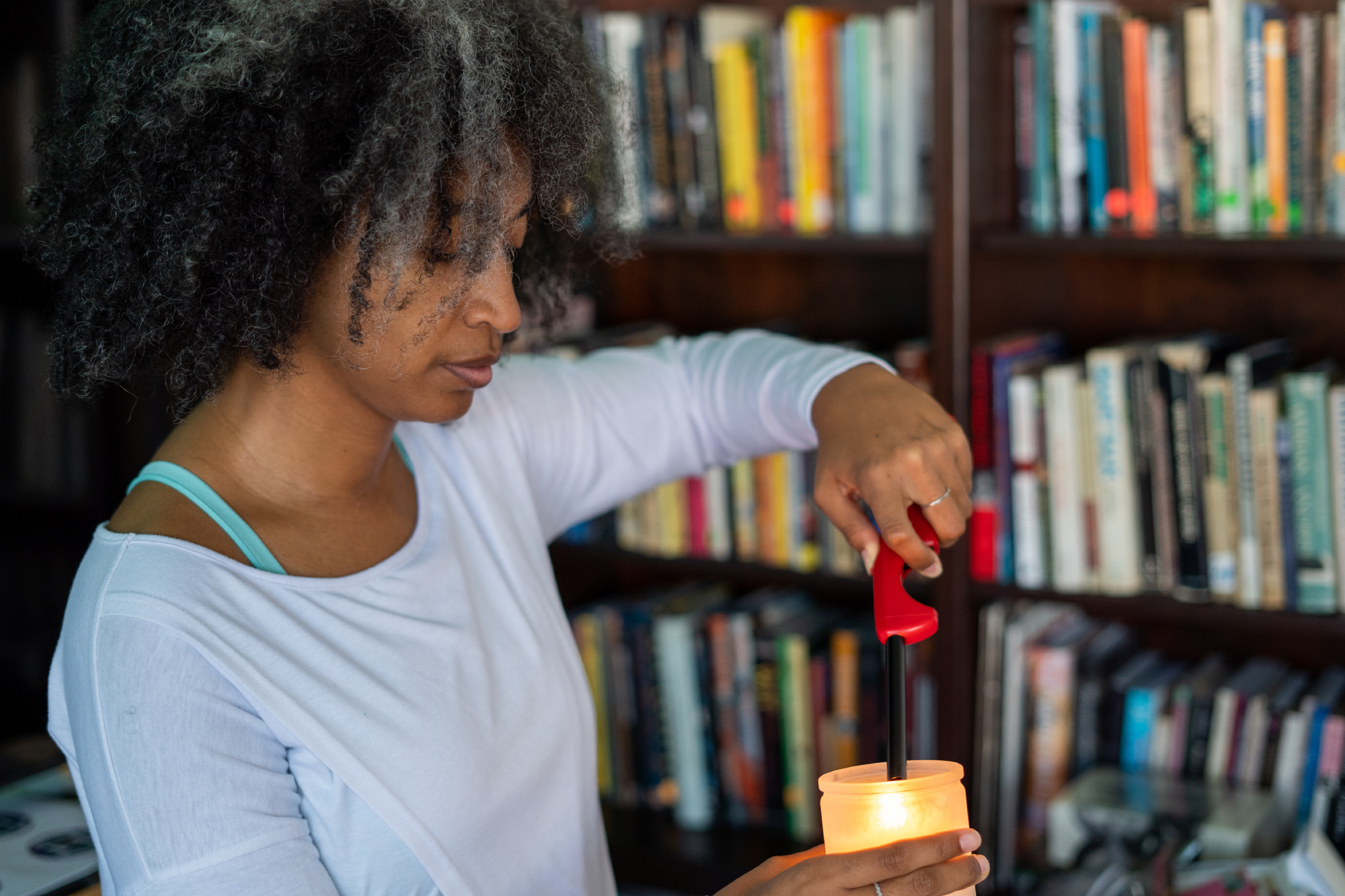
NOTES
1Name meaning born on Tuesday.
2Akan masculine name for someone born on Wednesday.
3A name for someone born on Thursday; a word also meaning strength.
4Goddess of Earth and Friday.
5The greater God of Saturday in Akan cosmology.
6God of Sunday.
7Akan name for the god who protects the children born on Monday. God of peace.
8Michelle Gonzalez-Green is a sister-friend, a Black woman artist, and institution-builder in my community who died in 2021 at the age of 53.